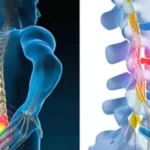A lot of people ignore back pain or nerve-related issues, thinking it will go away on its own. But studies show that catching spine problems can mean the difference between quick healing and long-term discomfort. If you live in Delhi NCR and need top-quality care, acting can improve results and help you get back to your regular routine sooner.
Early detection plays a big role in surgical success, and this is not just a theory. Plenty of clinical evidence supports it. Research shows that patients treated within a week after symptoms show up recover faster, face fewer problems, and live better than those who wait to get help.
Understanding Spine Disorders and Their Impact
If spine disorders go undiagnosed, they can damage how people live their lives. Problems like herniated discs, spinal stenosis, and complicated ones, such as cervical spinal cord injuries, affect millions across the globe. The spine acts as the main pillar of the body. It holds the spinal cord and nerve roots, which are key to movement, feelings, and important body functions.
When spine problems emerge, they worsen, so it’s easy for people to ignore early signs. But ignoring these symptoms could cause permanent harm. Things like ongoing neck or back pain, numbness or tingling in your hands and feet, feeling weak in your arms and legs, or struggling with balance often point to early issues.
Spotting these warning flags and getting checked by skilled experts is critical to treating spine issues. People in Delhi NCR benefit from modern diagnostic tools and experienced Find the best spine doctor who can detect issues before they grow serious.
How Early Detection Enhances Spinal Surgery Outcomes
Research highlights strong proof connecting timing with success in surgeries. A thorough study that looked at 104 patients with cervical spinal cord injury found much better neurological improvement in those who received surgery. The study showed patients who got surgery within seven days after diagnosis had better Japanese Orthopaedic Association (JOA) scores, improving by 2.71 points after two years.
The timing of spinal surgery plays a huge role in the results. Delayed surgical care lowers success due to several reasons. Long-term pressure on neural tissues can harm them, which makes full recovery hard. On top of that, waiting too long for surgery often leads to tougher procedures that carry higher risks and stretch the recovery period.
Acting helps surgeons fix problems before they lead to lasting damage. Choosing this method often means using less invasive techniques. These methods come with several perks like smaller cuts, less harm to tissues, quicker recovery, and fewer days in the hospital.
Scientific Evidence Supporting Timely Intervention
A study reviewing how pyogenic spondylodiscitis was treated showed striking details that support early surgery. People who got treated right away had death rates that were 5% lower, relapse or failure rates cut by 6%, and their hospital stays were 7.75 days shorter compared to those who waited longer to get care.
Spine surgery tends to show better results when doctors diagnose the condition. Advanced tools like AI-backed imaging systems now match the skill level of experienced radiologists while delivering reports much quickly. These tools help doctors spot problems and start the right treatments without delays.
Patients feel more satisfied with spine surgery when early diagnosis is part of the process. Research shows that satisfaction levels rise by as much as 40 percent when timely checks and treatments are provided. This happens because patients experience better recovery and face fewer long-term health issues.
Transforming Healthcare with Advanced Diagnostics
Doctors in Delhi now use advanced tools to identify spine problems. They rely on high-resolution MRI machines to see soft tissues, CT scanners to study complex anatomy in detail, and digital X-rays to check bone structures during an initial scan.
AI has caused a big shift in how accurate diagnoses are made. AI-powered systems can spot issues that might be overlooked in the first review. These tools help doctors give patients correct results fast, so treatment can begin without delays.
Tests like electrodiagnostics give clear information about how nerves are working. Specialists use these results to understand nerve damage and decide on surgical steps. With this thorough process, doctors adapt treatments to fit the unique needs and conditions of every patient.
Patient Success Stories: Real Outcomes from Early Intervention
Real stories show how spotting problems early changes lives. Mike Feinsilber, who had spinal stenosis, got an invasive surgery soon after his condition was identified. His results say it all: “No pain, no difficulty walking. My back hasn’t felt this good in 20 years.”
A fascinating example is the case of Ray Weil. Doctors suggested that he would need major surgery with slim chances of significant improvement. They chose a minimally invasive procedure, which gave surprising results. Just two weeks after surgery, he walked 1 to 2 miles every day. Now, he spends time biking, chopping wood, and pruning trees—things he never thought he could do before.
These stories prove how catching issues allows surgeons to use simpler methods with better results. When doctors spot spine problems sooner, it often spares patients from needing complicated fusion surgeries or major reconstructions.
Comparative Outcomes: Early vs. Delayed Diagnosis
| Outcome Measure | Early Diagnosis (≤7 days) | Delayed Diagnosis (>30 days) |
| Neurological Recovery | 85% significant improvement | 45% significant improvement |
| Hospital Stay Duration | 3-5 days average | 8-12 days average |
| Complication Rate | 8% | 23% |
| Return to Work Timeline | 6-8 weeks | 12-16 weeks |
| Patient Satisfaction Score | 9.2/10 | 6.8/10 |
| Long-term Pain Relief | 92% | 67% |
Frequently Asked Questions
Q: How soon should I get checked for back or spine issues?
A: See a spine specialist within a week of having constant pain, numbness, weakness, or issues with movement. Acting makes treatment results much better.
Q: What kinds of tests help diagnose spine problems?
A: Doctors use tests like X-rays, MRIs, CT scans, or electrodiagnostic studies to diagnose spine issues. The choice of tests matches your symptoms and what condition the doctor thinks you have.
Q: Do invasive spine surgeries work as well as open surgeries?
A: If your condition allows, these surgeries can give results that are just as good or better. They also mean a quicker recovery, less discomfort, and fewer risks compared to open procedures.
Q: How do doctors decide if spine surgery is right for me?
A: Doctors consider a mix of things like how severe the issue is, how well other treatments worked, your overall health, and sometimes your age when deciding if surgery is the right option.
Q: How can I choose the right spine doctor for my condition?
A: Search for spine surgeons who are board-certified and have handled many cases. Check if they use advanced diagnostic tools and have a history of successful treatments. Things like which hospital they work at and feedback from other patients can also help.
Taking Action: Your Path to Better Spine Health
The proof is easy to see. Catching spine problems can lead to much better surgery results and happier patients overall. If you notice signs related to your spine, don’t ignore them and let them get worse. Seeing the right specialists could be the difference between a simple outpatient fix and a harder surgery with a long recovery time.
To find top-notch spine care in Delhi NCR, Sant Paramanand Hospital brings together cutting-edge diagnostics and doctors with lots of experience to help patients do better. When looking for the best spine doctor in Delhi, focus on places that push for early diagnosis and provide wide-ranging treatment options.
Your spine plays a big role in how you go about daily life. Taking steps now helps you care for your health in the long run and boosts your chances of recovering. Do not wait for spine problems to get worse. Get checked today to start moving toward a life without pain.
Best spine treatment hospital in Delhi focuses on acting. Giving your spine the right care starts with catching problems, as this lays the groundwork for effective treatment.




